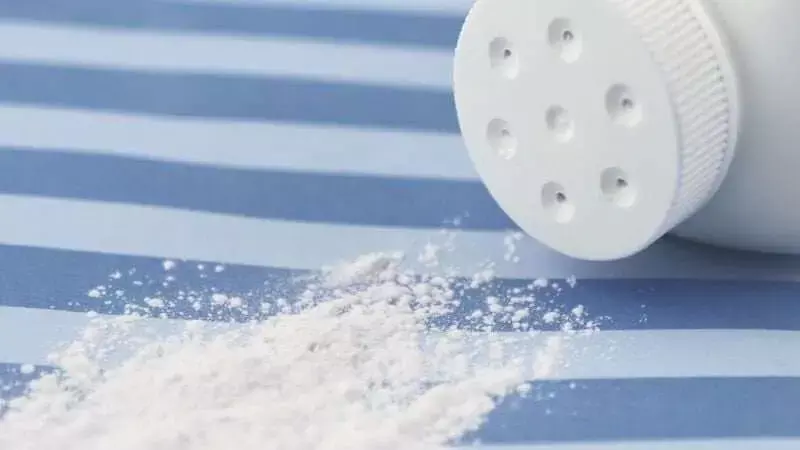- Home
- Medical news & Guidelines
- Anesthesiology
- Cardiology and CTVS
- Critical Care
- Dentistry
- Dermatology
- Diabetes and Endocrinology
- ENT
- Gastroenterology
- Medicine
- Nephrology
- Neurology
- Obstretics-Gynaecology
- Oncology
- Ophthalmology
- Orthopaedics
- Pediatrics-Neonatology
- Psychiatry
- Pulmonology
- Radiology
- Surgery
- Urology
- Laboratory Medicine
- Diet
- Nursing
- Paramedical
- Physiotherapy
- Health news
- Fact Check
- Bone Health Fact Check
- Brain Health Fact Check
- Cancer Related Fact Check
- Child Care Fact Check
- Dental and oral health fact check
- Diabetes and metabolic health fact check
- Diet and Nutrition Fact Check
- Eye and ENT Care Fact Check
- Fitness fact check
- Gut health fact check
- Heart health fact check
- Kidney health fact check
- Medical education fact check
- Men's health fact check
- Respiratory fact check
- Skin and hair care fact check
- Vaccine and Immunization fact check
- Women's health fact check
- AYUSH
- State News
- Andaman and Nicobar Islands
- Andhra Pradesh
- Arunachal Pradesh
- Assam
- Bihar
- Chandigarh
- Chattisgarh
- Dadra and Nagar Haveli
- Daman and Diu
- Delhi
- Goa
- Gujarat
- Haryana
- Himachal Pradesh
- Jammu & Kashmir
- Jharkhand
- Karnataka
- Kerala
- Ladakh
- Lakshadweep
- Madhya Pradesh
- Maharashtra
- Manipur
- Meghalaya
- Mizoram
- Nagaland
- Odisha
- Puducherry
- Punjab
- Rajasthan
- Sikkim
- Tamil Nadu
- Telangana
- Tripura
- Uttar Pradesh
- Uttrakhand
- West Bengal
- Medical Education
- Industry
Use of intimate care products including genital talc linked to ovarian cancer, reveals research

Use of intimate care products including genital talc linked to ovarian cancer suggests study published in the Journal of Clinical Oncology.
Intimate care products may contain substances associated with increased risk of hormone-related cancers. The relationship between genital talc use and ovarian cancer, in particular, has been well studied, but concerns about recall bias and exposure misclassification have precluded conclusions. We examined the association between intimate care products and female hormone–related cancers, accounting for potential biases, using data from a US-based cohort study. The Sister Study enrolled 50,884 women who had a sister with breast cancer. Data on genital talc use and douching were collected at enrollment (2003-2009) and follow-up (2017-2019). We used Cox proportional hazards models to estimate hazard ratios (HRs) for associations between intimate care product use and breast, ovarian, and uterine cancers. To account for potential exposure misclassification and recall bias, we conducted quantitative bias analyses under various exposure reassignment assumptions. Results: Across considered scenarios, 41%-64% of participants douched and 35%-56% used genital talc. In models adjusted for exposure misclassification, genital talc use was positively associated with ovarian cancer (HR range, 1.17-3.34) Frequent douching and douching during young adulthood were positively associated with ovarian cancer, but neither douching nor talc was associated with breast or uterine cancer. Differential reporting of talc use by cases and noncases likely produces positive biases, but correcting for error still resulted in HRs above 1.0. For example, HR, 1.40 (95% CI, 1.04 to 1.89) when 25% of exposed cases and 10% of unexposed noncases had talc status reassigned. Although results show how differential recall would upwardly bias estimates, corrected results support a positive association between use of intimate care products, including genital talc, and ovarian cancer.
Reference:
Katie M. O'Brien et al., Intimate Care Products and Incidence of Hormone-Related Cancers: A Quantitative Bias Analysis. JCO 0, JCO.23.02037 DOI:10.1200/JCO.23.02037
Dr. Shravani Dali has completed her BDS from Pravara institute of medical sciences, loni. Following which she extensively worked in the healthcare sector for 2+ years. She has been actively involved in writing blogs in field of health and wellness. Currently she is pursuing her Masters of public health-health administration from Tata institute of social sciences. She can be contacted at editorial@medicaldialogues.in.
Dr Kamal Kant Kohli-MBBS, DTCD- a chest specialist with more than 30 years of practice and a flair for writing clinical articles, Dr Kamal Kant Kohli joined Medical Dialogues as a Chief Editor of Medical News. Besides writing articles, as an editor, he proofreads and verifies all the medical content published on Medical Dialogues including those coming from journals, studies,medical conferences,guidelines etc. Email: drkohli@medicaldialogues.in. Contact no. 011-43720751


